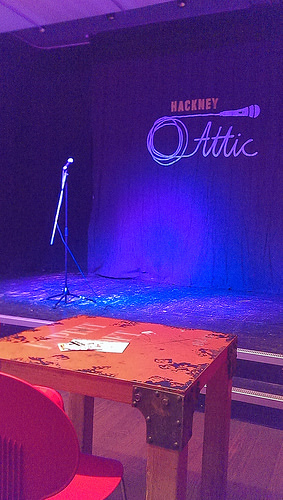Being connected without being connected

I have finally – finally! – realised what all the Facebook status updates I find so tedious have in common. That is, apart from the fact that they ostensibly have nothing in common, and that I find them tedious. I talked about the things I find irritating in How much should we share online?, so there's no need to rehearse it all over again.
What they all have in common is that none of them make any connection with me. Indeed, the people who write them make no attempt to engage my interest or feel a connection. None of them makes any effort to make me care.
This is strange when you consider that most of the people I follow in Facebook are in the educational technology business in one way or another, and who therefore will have taught kids that when they are writing a report or making a presentation they must take into account the needs of their audience. Instead, I feel like I have been metaphorically grabbed by the lapels, pinned against a wall, and had bellowed in my face “Look at me, look at me! Aren’t I wonderful? Today has been another resounding all-time success in my life, and it’s not even 10 am!! Aren’t I wonderful? Go on, admire me!”
Spark London: before the show at the Hackney Attic
I realised this when I wandered along to a Spark London event recently. Until now, I have been listening to their podcast, as I said in Relaxing with technology, but not attended a live event. The strapline of Spark London is “Connecting people through stories”, and I have to say that it seems to live up to its ambition.
Perhaps when we teach children how to make a podcast, we ought first to teach them how to tell stories. To tell stories effectively, you have to be able to put yourself in the other person’s shoes. In other words, you have to be able to connect. If we have enough kids who “get” that, maybe in due course we will be able to “friend” people on Facebook without fear of being shouted at!
Spark London was started by Joanna Yates. To hear her personal story about struggling with dyslexia, which was undiagnosed until she was fortunate enough to have a teacher who knew what she was looking at and what to do about it, listen to the podcast called Words.
Tools and ideas to transform education. Sign up below.
I’ve also written about Spark London in the context of writing: 4 ways that Spark London is good for writers
The Future of Story-telling is a MOOC (Massive Open Online Course). I’ve just enrolled, even though the course has already run, because all the materials are available still (as far as I can tell). Thanks to Tom Whitehead for telling me about it. Here’s a video about it:
cross-posted on www.ictineducation.org
Terry Freedman is an independent educational ICT consultant with over 35 years of experience in education. He publishes the ICT in Education website and the newsletter “Computers in Classrooms."
